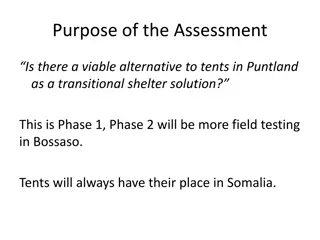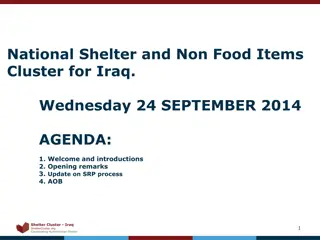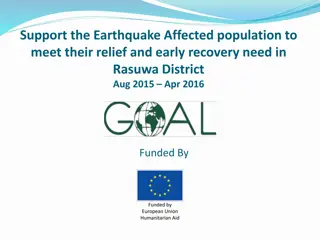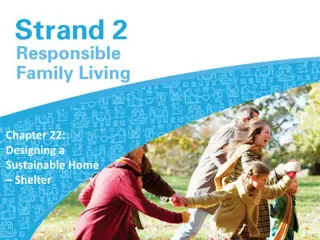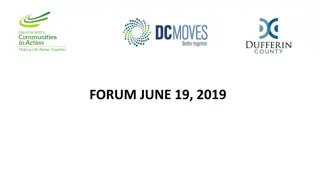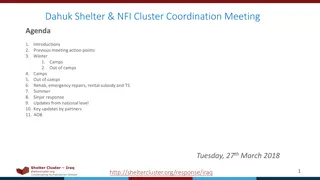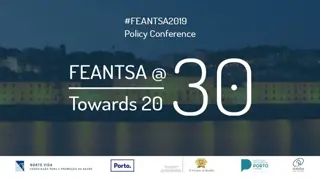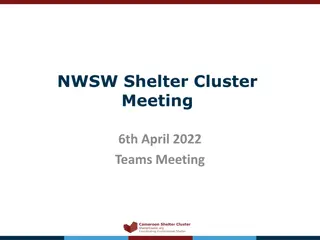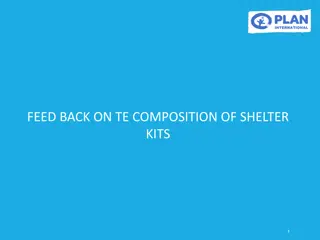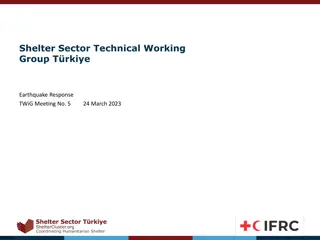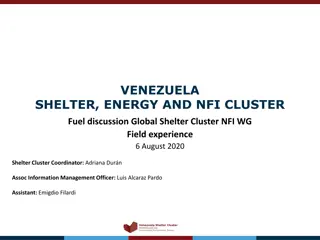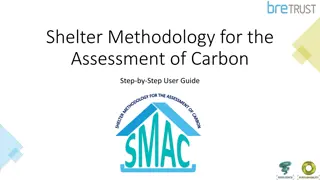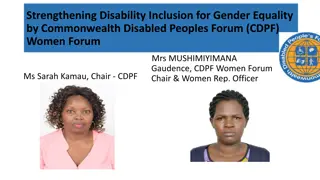The Grand Bargain: Friend or Foe? Insights from UK Shelter Forum June 2018
Game-based exploration of the Grand Bargain initiative focusing on transparency, support for responders, cash-based programming, cost reduction, needs assessments, and participation revolution. Visual slides show commitments and stakeholders involved.
Download Presentation

Please find below an Image/Link to download the presentation.
The content on the website is provided AS IS for your information and personal use only. It may not be sold, licensed, or shared on other websites without obtaining consent from the author. Download presentation by click this link. If you encounter any issues during the download, it is possible that the publisher has removed the file from their server.
E N D
Presentation Transcript
The Grand Bargain: Friend or Foe? UK Shelter Forum June 2018
Summary 1. Game 2. Origin of the Grand Bargain 3. Discussion
Game 22 Donor Countries 14 Multilaterals 13 NGOS 3 NGO Networks 1 Government Forum
Game Choose your own Grand Bargain commitments
Game Grand Bargain Bingo
Grand Bargain Commitments
Grand Bargain Commitments 1. Greater transparency
Grand Bargain Commitments 1. Greater transparency 2. More support and funding tools for local and national responders
Grand Bargain Commitments 1. Greater transparency 2. More support and funding tools for local and national responders 3. Increase the use and coordination of cash-based programming
Grand Bargain Commitments 1. Greater transparency 2. More support and funding tools for local and national responders 3. Increase the use and coordination of cash-based programming 4. Reduce duplication and management costs
Grand Bargain Commitments 1. Greater transparency 2. More support and funding tools for local and national responders 3. Increase the use and coordination of cash-based programming 4. Reduce duplication and management costs 5. Improve joint and impartial needs assessments
Grand Bargain Commitments 1. Greater transparency 2. More support and funding tools for local and national responders 3. Increase the use and coordination of cash-based programming 4. Reduce duplication and management costs 5. Improve joint and impartial needs assessments 6. A participation revolution
Grand Bargain Commitments 1. Greater transparency 2. More support and funding tools for local and national responders 3. Increase the use and coordination of cash-based programming 4. Reduce duplication and management costs 5. Improve joint and impartial needs assessments 6. A participation revolution 7. Increase humanitarian multi-year planning and funding
Grand Bargain Commitments 1. Greater transparency 2. More support and funding tools for local and national responders 3. Increase the use and coordination of cash-based programming 4. Reduce duplication and management costs 5. Improve joint and impartial needs assessments 6. A participation revolution 7. Increase humanitarian multi-year planning and funding 8. Reduce the earmarking of donor contributions
Grand Bargain Commitments 1. Greater transparency 2. More support and funding tools for local and national responders 3. Increase the use and coordination of cash-based programming 4. Reduce duplication and management costs 5. Improve joint and impartial needs assessments 6. A participation revolution 7. Increase humanitarian multi-year planning and funding 8. Reduce the earmarking of donor contributions 9. Harmonise and simplify reporting requirements
Grand Bargain Commitments 1. Greater transparency 2. More support and funding tools for local and national responders 3. Increase the use and coordination of cash-based programming 4. Reduce duplication and management costs 5. Improve joint and impartial needs assessments 6. A participation revolution 7. Increase humanitarian multi-year planning and funding 8. Reduce the earmarking of donor contributions 9. Harmonise and simplify reporting requirements 10. Enhance engagement between humanitarian and development actors
Origin Where did the Grand Bargain come from?
Origin Shrink the needs Broaden the resource base Improve efficiency HLPHF (2016) Too important to fail addressing the humanitarian financing gap. Report to the Secretary-General .
Requirements and actual funding, UN-coordinated appeals 2007-2016 (Development Initiatives, 2017)
Origin Saving Money = Better Humanitarian Outcomes
Origin no one having to die or live without dignity for the lack of money . HLPHF (2016) Too important to fail addressing the humanitarian financing gap. Report to the Secretary-General .
Turkey 2011 New Zealand 2011 Chile 2010 Italy 2009 Pakistan 2005 Thailand 2004 Iran 2003 0 5 10 15 20 25 30 YEARS Speed of recovery rates from major earthquakes. Adapted from (Platt, S 2017)
Discussion Will these commitments help or hinder the Shelter and Settlements sector?
Grand Bargain Commitments 1. Greater transparency 2. More support and funding tools for local and national responders 3. Increase the use and coordination of cash-based programming 4. Reduce duplication and management costs 5. Improve joint and impartial needs assessments 6. A participation revolution 7. Increase humanitarian multi-year planning and funding 8. Reduce the earmarking of donor contributions 9. Harmonise and simplify reporting requirements 10. Enhance engagement between humanitarian and development actors
Thank you Lizzie Babister elizabeth.babister@open.ac.uk





